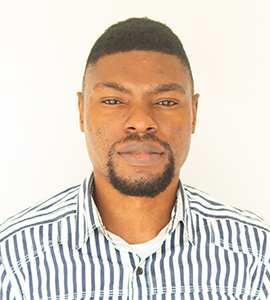Tackling Poverty in Rivers State through Empowerment: The Impact of TalkLove Africa.
Extreme poverty remains a persistent challenge globally, affecting over 11% of the world's population in 2024, with Nigeria bearing a significant portion of this burden. Despite being one of the most resource-rich nations, Nigeria is also one of the five poorest countries worldwide in terms of gainful livelihoods, according to World Bank reports. This paradox means that a substantial number of Nigerians live below the international poverty line of $1.90 per day, struggling to meet basic needs such as food, shelter, and healthcare. Rivers State, situated in the heart of Nigeria's oil-rich Niger Delta region, faces its unique share of poverty-related challenges, with women particularly affected due to socio-economic and cultural factors.
In response to this pressing issue, TalkLove Africa Foundation has emerged as a beacon of hope for impoverished communities, especially in Rivers State. Through its Livelihood Program, the foundation has been at the forefront of observing poverty trends, understanding the unique needs of the communities, and providing strategic support aimed at poverty alleviation. With a specific focus on empowering women, TalkLove Africa Foundation has been working tirelessly to establish micro-enterprises, offering startup capital and training. This article sheds light on the foundation’s significant efforts to combat extreme poverty, specifically amongst women, in Rivers State, Nigeria.

Analyzing the Impact of Poverty in Rivers State, Nigeria.
Nigeria’s position as a major player in the global oil market may seem incongruent with its poverty statistics. However, the distribution of wealth within the country remains highly unequal, with income disparities especially pronounced in the Niger Delta region. The communities in Rivers State have seen limited benefits from Nigeria’s oil wealth, facing environmental degradation, economic hardships, and diminished access to basic services as a result of oil exploration activities. This lack of sustainable economic opportunities has contributed to the high poverty rates in the region, with a significant portion of the population left without stable or gainful employment.
In particular, women in these communities bear the brunt of poverty’s impact, often tasked with supporting families under challenging circumstances. Cultural expectations and limited access to resources further restrict their financial independence. TalkLove Africa Foundation recognized the need for intervention, especially among women, as empowering them not only enhances their personal lives but also creates a ripple effect, benefiting families and communities at large. By focusing on women, the foundation aims to disrupt the poverty cycle by promoting financial autonomy and building resilience within these communities.

Observing and Understanding Poverty Interactions.
Before implementing sustainable solutions, the TalkLove Africa Foundation undertook an in-depth examination of the poverty interactions in Rivers State. This observation phase allowed the foundation to gain a clear understanding of the economic and social challenges faced by the community, especially by women. By engaging with community members directly, TalkLove was able to identify specific barriers to financial independence, such as lack of access to capital, limited financial literacy, and the socio-cultural constraints that affect women disproportionately.
Through this data-driven approach, the foundation identified micro-enterprises as a viable solution to empower women. Small-scale businesses, particularly those involving trade and craft, were seen as an opportunity for women to generate sustainable income and become active economic participants within their communities. This observation phase was essential for tailoring the Livelihood Program to meet the unique needs of Rivers State, ensuring that solutions were relevant and impactful.
Enabling Women Through Micro-Enterprise Support.
A core component of TalkLove Africa Foundation's Livelihood Program is its commitment to providing startup capital for women looking to establish micro-enterprises. With access to this capital, women who otherwise lacked the financial resources to start a business have been given an opportunity to escape the poverty cycle. Micro-enterprises, which require minimal investment but can yield substantial returns, are particularly effective in settings like Rivers State, where large-scale employment opportunities are scarce.
By offering start-up fund, the foundation mitigates the financial barriers that often prevent women from pursuing entrepreneurial ventures. Additionally, TalkLove Africa Foundation provides guidance on financial management, basic accounting, and sustainable business practices, ensuring that beneficiaries have the skills necessary to manage their enterprises effectively. These businesses range from small-scale retail shops to farming cooperatives and tailoring services, each suited to the unique needs and skills of the local community.

Training and Capacity-Building Initiatives.
In addition to financial support, TalkLove Africa Foundation’s Livelihood Program emphasizes training and capacity-building. Recognizing that financial capital alone is insufficient, the foundation provides hands-on training in essential skills such as budgeting, marketing, and customer relationship management. These workshops equip women with the knowledge required to run successful businesses, enhancing their financial literacy and boosting their confidence as entrepreneurs.
Capacity-building goes beyond business skills, as TalkLove Africa Foundation also promotes community-building values, fostering solidarity among women entrepreneurs. By creating support networks, the foundation enables women to learn from each other, share resources, and tackle common challenges collectively. This sense of community encourages resilience and perseverance, helping women to overcome obstacles and grow their businesses.
The Ripple Effect of Empowering Women.
The impact of TalkLove Africa Foundation’s efforts extends beyond individual beneficiaries. When women gain financial independence and the ability to support their families, the entire community benefits. Children in these families are more likely to attend school, households experience improved access to healthcare, and communities witness an overall improvement in quality of life. Empowered women serve as role models, inspiring others to pursue entrepreneurship and creating a culture of resilience.







Leave A Reply